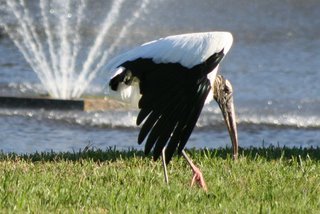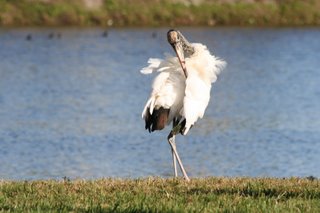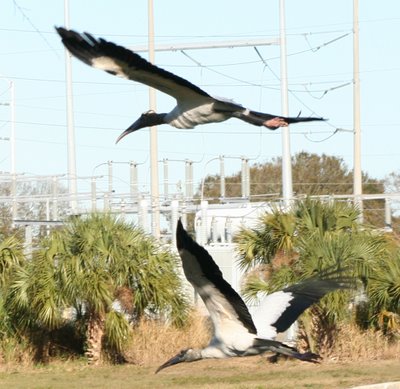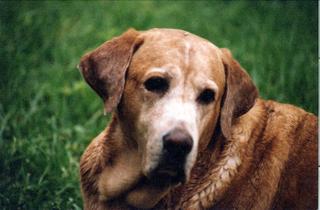May 24, 2006
Birthday Wishes

Just a quick note: It was my birthday yesterday. And a fine day it was, complete with carrot cake and vanilla ice cream. Before dinner we headed out to my favorite bayside park for a swim and Frisbee toss. Then Mike and Molly were thoughtful enough to wrap up a brand-spanking-new duck toy (with a quack so realistic sounding it gives a Labrador pause) and a giant bac'n cheese cookie that I must pace myself gobbling up. I have to admit, though, that amid all the revelry and happy birthday fun, I did sneak a moment to reflect on the past 9 years and to wish for many more to come.
May 21, 2006
Shell Proud
The pride of people is wondrously amusing to your average canine. I love to sit on the rug in the bedroom and watch the humans watch themselves in the mirror. They are oh so attentive to the details: the tone of skin, the shape of eyebrow, the thickness of lash, the hair in nose and whisker on chin. Vanity, thy name is human. The only one who adores you as much as your dog is, well, yourself.
My experience is that pride is not the sin of any particular age group but that each feels pride in different things. Young people are often proud of what's God-given. There are the profuse, luxuriant locks of hair that young women carry with the pride of lions, and there are the young men who parade shirtless as if that power of youthful vigor were their very own invention. Or they have pride in the popularity of peer groups, prolifigate in their innocent arrogance.
In middle age, people try to maintain their pride in beauty, but it gets harder. The young seem to always win the battle for physical perfection. And so the middle aged become prone to pride in social position: professional achievement, promotions, pay scales, and the like. Or they become proud of physical things: the sleek new car, the airy house along the shore, the slickest, shiniest cell phone.
Even in their elder years, people have their pride, though it's more tempered by an approaching eternity: pride in children and grandchildren, in health and hearing aids, in the latest fishing equipment, in the ability to pontificate about politics, in feats of memory during games of bridge, in becoming the president of the condo board, or just in maintaining a sense of humor in the face of the priceless catastrophe of old age.
We dogs also have our pride of course, but our pride is of a simpler and somehow less ego-driven sort. Me, I strut in pride at the simplest of things: walking with humans down the beach, being the first dog to the frisbee, or just diving for clam shells in the shallows of the bay. In fact, nothing makes me prouder than claiming and carrying a hefty piece of thick shell in my mouth. Molly calls me "shell proud," and so I am. Shell proud. If only human pride came as freely and easily, the world might be a step closer to the Buddhist ideal of Nirvana, that penultimate prima-donna-less paradise.
(By the way, you may have noticed a profusion of Ps in this post, a task sort of awarded to me by Kimananda. I haven't followed the rules of the game precisely because I am, after all, a different breed of blogger. But I will say that I used all these particularly potent and pungent words for the same simple reason: dogs just adore a continuing string and wide variety of P).
My experience is that pride is not the sin of any particular age group but that each feels pride in different things. Young people are often proud of what's God-given. There are the profuse, luxuriant locks of hair that young women carry with the pride of lions, and there are the young men who parade shirtless as if that power of youthful vigor were their very own invention. Or they have pride in the popularity of peer groups, prolifigate in their innocent arrogance.
In middle age, people try to maintain their pride in beauty, but it gets harder. The young seem to always win the battle for physical perfection. And so the middle aged become prone to pride in social position: professional achievement, promotions, pay scales, and the like. Or they become proud of physical things: the sleek new car, the airy house along the shore, the slickest, shiniest cell phone.
Even in their elder years, people have their pride, though it's more tempered by an approaching eternity: pride in children and grandchildren, in health and hearing aids, in the latest fishing equipment, in the ability to pontificate about politics, in feats of memory during games of bridge, in becoming the president of the condo board, or just in maintaining a sense of humor in the face of the priceless catastrophe of old age.
We dogs also have our pride of course, but our pride is of a simpler and somehow less ego-driven sort. Me, I strut in pride at the simplest of things: walking with humans down the beach, being the first dog to the frisbee, or just diving for clam shells in the shallows of the bay. In fact, nothing makes me prouder than claiming and carrying a hefty piece of thick shell in my mouth. Molly calls me "shell proud," and so I am. Shell proud. If only human pride came as freely and easily, the world might be a step closer to the Buddhist ideal of Nirvana, that penultimate prima-donna-less paradise.
(By the way, you may have noticed a profusion of Ps in this post, a task sort of awarded to me by Kimananda. I haven't followed the rules of the game precisely because I am, after all, a different breed of blogger. But I will say that I used all these particularly potent and pungent words for the same simple reason: dogs just adore a continuing string and wide variety of P).
May 14, 2006
May 13, 2006
The Flight of the Wood Storks
 I believe in the wisdom of wood storks. They remind me of a book I chewed on as a pup, one of Mike's old anthropology texts (wonderful musty flavor) about people called Kaluli. They believe that some animals, particularly birds, are the visible reflections of human spirits, spirits who reside in the eerie wilds of the Papuan rain forest.
I believe in the wisdom of wood storks. They remind me of a book I chewed on as a pup, one of Mike's old anthropology texts (wonderful musty flavor) about people called Kaluli. They believe that some animals, particularly birds, are the visible reflections of human spirits, spirits who reside in the eerie wilds of the Papuan rain forest. Leave it to humans to see themselves in the creatures around them, yet I understand the Kaluli's point of view when it comes to wood storks. There is something weirdly reminiscent about them as they congregate along the banks of the lake. They put me in mind of a cloister of bald and aging monks moving silently and slowly in white and black robes. At first, they simply seem austere and contemplative. After a time, however, a kind of ancient grace emerges in their movements as they preen and socialize, perhaps as a prelude to mating.
Leave it to humans to see themselves in the creatures around them, yet I understand the Kaluli's point of view when it comes to wood storks. There is something weirdly reminiscent about them as they congregate along the banks of the lake. They put me in mind of a cloister of bald and aging monks moving silently and slowly in white and black robes. At first, they simply seem austere and contemplative. After a time, however, a kind of ancient grace emerges in their movements as they preen and socialize, perhaps as a prelude to mating.They are so elegant for creatures of such repellent visages. I approach them more quietly than I do other groups of birds, my head down. I even stand still and watch for a while, as Mike whispers something to me from behind. But, after taking one last respectful moment to admire the old souls, my dog nature kicks in and I dash into their midst, thinking, "Get off the carpet
 you bald bunch of preening, prehistoric escapees from a Doctor Seuss nightmare! This is my lake, damn it! MY lake!" And I half gallop after them with huffing Labrador happiness, meaning no harm yet asserting the age-old dominance of canines over birds.
you bald bunch of preening, prehistoric escapees from a Doctor Seuss nightmare! This is my lake, damn it! MY lake!" And I half gallop after them with huffing Labrador happiness, meaning no harm yet asserting the age-old dominance of canines over birds.The storks lift into sky with a lugubrious, long-suffering look that makes Mike feel guilty and chagrins Molly, the family nature photographer. But I've no doubt those storks have seen worse. I even get the feeling they don't much hold it against me as they glide over the lake together, ascending past electric wires and power transformers, then up and across the the sprawl of the city. Below are streets and cars and thousands of homes with humans inside, stonily watching reruns of "Law and Order." Unknown to them, the wood storks soar above on astonishing wings, spirits seeking sanctuary in the diminishing Florida wilds.

May 02, 2006
Springtime in the Tropics
 A lot of humans think there are no seasons in Florida but the dogs here know there are plenty. There's tourist season, for example, when Mike finds it hard to locate parking at the beach and red-skinned Canadians mutter under their breath at Labradors galumphing about in their native habitat. Or there's football season, which many a dog finds loud and alarming, with humans spewing strong emotions for unfathamable reasons at unpredictable times.
A lot of humans think there are no seasons in Florida but the dogs here know there are plenty. There's tourist season, for example, when Mike finds it hard to locate parking at the beach and red-skinned Canadians mutter under their breath at Labradors galumphing about in their native habitat. Or there's football season, which many a dog finds loud and alarming, with humans spewing strong emotions for unfathamable reasons at unpredictable times.There's also hurricane season, with all the attendant human anxiety and board cutting and storm tracking. And there's mango season, when Molly refuses to go in the backyard (she's allergic), Mike curses the local fruit rats, and neighbors we didn't know we suddenly show up on the stoop with grocery bags in hand. (I get some serious barking done this time of year).
But maybe the best time of year is springtime around the lake. The humidity doesn't yet make a thick-coated dog feel as if he's wallowing through a curtain of heat, lightning doesn't daily threaten an instant electric death, the lake water is still cool enough to enliven Labradors and, best of all, there's still the scent of green hope sending its undaunted tendrils into the harsh, stifling future of the coming tropical months.
The signs are plain all around the glorified retention pond that is my lake. In the still, clear water, you can see the circular bass nests throughout the shallows. These little craters are sewn with the seed of hot-blooded fish. The males chase each other out of one another's territories, guarding the nests as jealously as a dog does his porch. There are eggs there, I know, thousands of gooey little globes biding their time.
Life begins this way for all creatures, of course. On one side of the lake, the dumbest of domesticated white ducks - the kind I chase with a kind of disdain - has built a nest and laid her eggs nearly out in the open, next to a willow tree and green bench. And the cannier, wilder gullinule has built a nest down at the level of the water, one much harder to detect.
It's obvious, even to a Labrador, that the future has many enemies. There are sharp-beaked birds in the trees that attack the duck eggs, and there are little skate-boarding boys who've molested the gallinule eggs. I myself have stirred up the waters around some of the bass nests, to Molly's chagrin.
It's astonishing that life carries on at all. You, dear reader, are part of an unbroken chain of births dating back billions of years, if the human scientists are to be believed. Not once have your countless ancestors stumbled. Your forebears, and mine, were always the eggs that survived, the young that went uneaten, the babies that didn't perish in a precarious world. In other words, you and I are the longest of longest shots, the fruit of odds so long that they make your average lottery look like a sure bet. We are the inheritors of this impossible springtime. Today, I just want to prance through the green with a bough in my jaws and breath it all in.

